


Amina Schartup is an Assistant Professor at the Scripps Institution of Oceanography (SIO) in San Diego, USA. Before SIO, Amina was a research associate at Harvard University investigating various aspects of the mercury cycle, from chemical transformations in flooded soils to biomagnification in marine food webs. Amina also spent 2 years at the U.S. National Science Foundation in the Office of Polar Programs where she worked in the Arctic Sciences Section on efforts to coordinate national and international research that support improving the resilience and sustainability of Arctic communities. Amina is particularly interested in research questions that address vulnerable communities needs and response to environmental change. Amina received a BSc. in Chemistry from the University of Paris V, an MSc. in Geochemistry from the University of Paris VII/Paris Institute of Earth’s Physics (IPGP), and a Ph.D. in Oceanography from the University of Connecticut.

Anne Soerensen is a researcher at the Department of Environmental Research and Monitoring at the Swedish Museum of Natural History, Sweden. She holds a M.Sc. in Biology from the University of Copenhagen, Denmark, and a Ph.D. in Atmospheric Chemistry from Aarhus University, Denmark. She worked as a postdoctoral fellow at Harvard University, USA, before moving to Sweden. Since coming to Sweden she has used the Baltic Sea (a semi-enclosed costal sea) as a study system to understand the main drivers controlling spatiotemporal variability in water column dynamics, food web uptake and bioaccumulation of mercury in aquatic systems. She also works with mercury in the Arctic, with specific focus on sources to, and processes within, the Arctic Ocean. Her work employs a combination of experimental, field based and modeling approaches. She is furthermore in charge of the Swedish Monitoring Programme for Contaminants in Marine Biota.
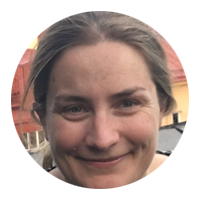
His research interest is in understanding mercury cycling in environmental systems. He has worked for almost ten years on issues related to global mercury pollution, environmental modeling, and human exposure.
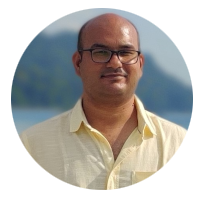
Distinguished Prof. Babajide Alo, holds a PhD Chemistry 1979 from the University of Ibadan, Nigeria/University of Bristol, UK and extended post-doctoral work at the University of Waterloo, Ontario, Canada.He is an international acknowledged expert in Environmental and Sustainable management and development issues especially in developing countries. He has been Nigeria’s Lead Consultant on Minamata Convention (MC) issues after having been a member of Africa’s Negotiators at the INCs for the MC. He served as the National Consultant for the preparation of the Nigeria’s MIA and currently serving as lead National Consultant for Nigeria’s NAP for ASGM been prepared in line with the requirements of the MC.He is a Fellow and former National President of the Nigerian Environmental Society; Fellow of the Chemical Society of Nigeria; Fellow of the Institute of Public Analysts of Nigeria, Fellow of the Institute of Chartered Chemists of Nigeria, and Fellow of the prestigious Nigerian Academy of Science (FAS).He is presently Distinguished Professor of Chemistry and immediate past Deputy Vice Chancellor (Academics & Research), at the University of Lagos, Nigeria; the Centre Director, University of Lagos Centre for Environmental Human Resources Development. He is a member of IMO’s Joint Group of Experts on the Scientific Aspects of Marine Environmental Protection (GESAMP) and co-author of the UNEP’s Global Chemicals Outlook (GCO I & II) and contributing author of the United Nations World Ocean Assessment I and the latest edition, published by the Cambridge University Press, 2016.He has over 160 publications in learned Journals and Conference proceedings to his credit. He is widely travelled and has served as Chair or Co-Chair of many United Nations (UNEP and UNIDO) international Expert Committees, adhoc groups, meetings and represented Nigeria as Technical Adviser on numerous global delegations . He has been serving as the Technical Expert/Focal Point to the Nigerian Delegation to the on-going United Nations Negotiations for the development of a Legally Binding Instrument for the Conservation of the Marine Biological Diversity of Areas Beyond National Jurisdiction since 2017.
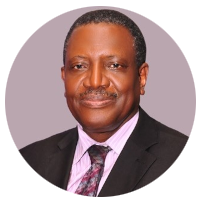
Casper Labuschagne is a senior researching scientist at the South African Weather Service’s Global Atmosphere Watch station at Cape Point. He studied at the Nelson Mandela Metropolitan University where he developed his interest for atmospheric related sciences. During his 24 year tenure at SAWS, he has been responsible inter alia, for the establishment of the Cape Point Mercury monitoring programme, the success of which has resulted in its inclusion into the European Union's FP7 project Global Mercury Observation System (GMOS). Casper’s author and co-author list consists of 126 peer reviewed articles, book chapters, conference proceedings and article reviews. His scientific interests are wide ranged, focusing mainly on the fate and transport of environmentally significant pollutants (such as mercury) as well as greenhouse gasses.

Celia Chen is a Research Professor of Biology at Dartmouth College and Director of the Dartmouth Toxic Metals Superfund Research Program. She received her M.S. in biological oceanography at the University of Rhode Island, and her Ph.D. in aquatic ecology from Dartmouth College. Over the last 25 years, her research has focused on the bioaccumulation and fate of metals, and mercury, in particular, in aquatic ecosystems including lakes and ponds, reservoirs, streams and rivers, and estuaries. In addition to her research program on Hg, she is also the Leader of the Research Translation Core (RTC) of the Dartmouth Superfund Research Program (SRP) that is tasked with communicating and facilitating the application of the research findings of the Dartmouth SRP to policy makers, other stakeholder groups and the public. She has also served on Science Advisory Board Panels of the USEPA for mercury risk assessment, nutrient loading in Lake Erie, and science and technology awards. She has also served on the boards of the North Atlantic Chapter of the Society of Environmental Toxicology and Chemistry, and the Gelfond Fund at Stony Brook University.

Charles T. Driscoll is a Distinguished and University Professor at Syracuse University, Syracuse NY USA. Driscoll’s scholarly work addresses the effects of disturbance on forest, urban, freshwater and marine ecosystems, including air pollution (acid and mercury deposition), land-use, and climate change. Current research focuses on: recovery of eastern forest watersheds from acidic deposition; co-benefits of carbon dioxide emissions controls from power plants; ecosystem restoration; ecosystem response to changing climate; harmful algal blooms; and atmospheric deposition, watershed and surface water transport and transformations, and biotic exposure of mercury. Driscoll has approximately 500 articles published in peer-reviewed journals and an H-Index of 106 (Google Scholar), and has been designated as a highly cited researcher. Driscoll has testified at US Congressional and state legislative committee hearings, and has served on local, national and international committees pertaining to environmental management and policy. He is a member of the National Academy of Engineering and a fellow of the American Association for the Advancement of Science.

David Amouroux, is Research Director at the French CNRS appointed at the Institute of Analytical Sciences and Physico-Chemistry for the Environment and Materials (IPREM, CNRS – University of Pau & Pays Adour) and he is research leader of the IPREM Cluster for Environmental Chemistry and Microbiology. He is an environmental and analytical chemist, specifically interested in cycling and reactivity of contaminants in the environment. Some of his research lines include: i) transformations and transfer of mercury; selenium and other metal(loid)s at aquatic environments interfaces and ii) development of analytical and experimental methods using stable isotopes of trace elements to investigate biogeochemical mechanisms in the environment. He has authored and co-authored more than 180 articles in peer-reviewed scientific journals, 10 chapters in books, 40 invited conferences and 400 communications in conferences.

DOMINIQUE BALLY KPOKRO is a chemical engineer, specialized in industrial and food chemistry; issues related to environmental pollution by hazardous chemicals and corporate social responsibility. He holds an engineering degree in industrial and food engineering and a master's degree in environmental and health sciences from the University of Versailles St Quentin in France. He is preparing a PhD in Environmental Sciences at the Universities of Surrey and Wollongong in Great Britain and Australia respectively. The most practical side of his career started with project work undertaken as a program director for the NGO Jeunes Volontaires pour l'Environnement, an organization based in Abidjan. As Program Director, he coordinated several programs related to mercury and the Minamata Convention for UN agencies (UNEP, UNIDO) in West Africa. This has led him to work on improving the living conditions of artisanal and small-scale mining communities in Côte d'Ivoire, Burkina Faso, Mali, Guinea, Niger, Ghana, Senegal, based on studies conducted and projects implemented to not only reduce mercury in ASGM, but also to organize the sector to benefit all poor people who depend on it for their survival. This work inspired him to create his own NGO in 2016, the African Centre for Environmental Health, whose mission is to work for the well-being of African populations through the improvement of environmental conditions, the health of the different compartments of the environment and the health of populations. As Director, he has held a slightly more influential policy position, which has allowed him to work in collaboration with international NGOs (IPEN, EEB, Groundwork, NRDC, Global Initiative Against Transnational Organized Crime, etc.) and international donors. As a result, it has been able to serve as an executing agency for UNEP in the development of the national action plans for ASGM in Guinea and Niger since 2016, and for Côte d'Ivoire and Togo since July 2020. His work advising West African governments on the Minamata Convention and mercury pollution reduction strategies in ASM has enabled him to more effectively develop environmental and occupational health strategies to assist countries in formalizing their ASGM sector’s.
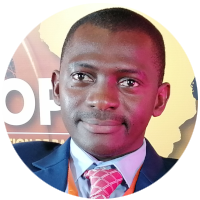
At Tekran Instruments, Dr. Eric Prestbo is focused on strategic technology planning, research and instrument development for mercury in ambient air, industrial monitoring and laboratory-based analytical sectors. Dr. Prestbo has 25 years of experience leading research studies focused on mercury speciation methods development applied to reaction rate determinations, ambient air, industrial emissions, fate in combustion plumes and wet/dry deposition measurements. Dr. Prestbo was one of the principal scientists that helped develop and grow the Mercury Deposition Network (MDN) and Atmospheric Mercury Network (AMNet) of the National Atmospheric Deposition Program (NADP) in North America. International initiatives have focused on knowledge transfer of air mercury monitoring and laboratory methods, with an emphasis on global assessment tools for the Minimata Convention on Mercury.

Guey-Rong Sheu is a Professor of Atmospheric Sciences at the National Central University in Taiwan. He has a PhD in Environmental Chemistry from the University of Maryland, College Park in USA where he graduated in 2001. His current and recent research focuses on atmospheric Hg cycling in the East and Southeast Asia and in regions downwind of the East Asian continent, such as Taiwan and neighboring countries and oceans (e.g. South China Sea, East China Sea, Taiwan Strait, NW Pacific Ocean). He started long-term monitoring of speciated atmospheric Hg at the Lulin Atmospheric Background Stations (LABS) in central Taiwan since 2006 to study the export of atmospheric Hg from East Asia. Since 2008, he assisted Taiwan EPA in establishing and operating a nation-wide wet Hg deposition monitoring network, consisting of 12 sampling sites, to collect weekly rainwater samples for Hg analysis. He started working with Taiwan EPA, USEPA and the National Atmospheric Deposition Program (NADP) to promote the collaboration in atmospheric Hg monitoring in the Asia-Pacific region since 2012, resulting in the establishment of the Asia Pacific Mercury Monitoring Network (APMMN) that addresses significant data gaps in a region where atmospheric Hg emissions are the highest globally but available measurement data are limited.

Ian Gildenhuys joined the City of Cape Town's Environmental Health Unit back in 1987, and has gained a wealth of experience in environmental health matters in his 34 year career in local government. He currently serves as the designated Air Quality Officer, Grade 1 Environmental Management Inspector and Head of the Specialized Environmental Health Unit located within City Health, for the City of Cape Town. He Unit is primarily responsible for regulating emissions from Industries as mandated in terms of the National Environmental Management: Air Quality Act. His obtained his tertiary education at the Cape Peninsula Technikon (now known as the Cape Peninsula University of Technology) - a National Diploma in Public Health and a National Higher Diploma in Environmental Health. He is a passionate family man and loves spending time undertaking various outdoor activities in the natural environment.

Dr Janet is a Visiting Lecturer at the Wits Mining Institute- Centre for Sustainability in Mining & Industry (CSMI) and previously, served as External Examiner (Community Course) at the Centre for Sustainability in Mining & Industry (CSMI) from 2015 to 2018. She is also affiliated to the African Centre for Migration & Society (ACMS) as a Senior Research Fellow and Guest Lecturer. Janet possesses vast skills in both quantitative and qualitative research methodologies and a strong understanding of standardized evaluative procedures and monitoring techniques, facilitation, rapporteuring including report writing skills. Furthermore, she is involved in identification of research activities, resource mobilisation, setting time lines, lobbying, and advocacy including evaluating community interventions and related activities on and off-campus. Her doctoral dissertation (funded by the University of the Witwatersrand’s Post Merit Award Bursary (PMA) and the National Research Foundation (NRF) examined labour migration in its historical and contemporary contexts with a particular focus on mining, migrant workers mobilisation trajectories in South Africa. In a way, the interdisciplinary nature of her study informed and shaped current research interests. Overall, Janet’s scholarly interests range widely, from mining, labour, migration, gender and development. She possess vast experience working with government, business, trade unions, civil society, and international agencies/ global unions such as the International Labour Organisation (ILO), Public Service International, Solidarity Center, Greenpeace and Oxfam. Aside academia, Janet is a community activist and provides facilitation & rapporteuring services to mining affected communities, trade unions, community-based organisations (CBOs), migrant-rights organisations (MROs), non-governmental organisations and United Nations Agencies. She is a hard-working, critical thinker and interacts very well with people at different levels and was trained on leadership skills.

Dr Jenny Fisher is an Associate Professor in the Centre for Atmospheric Chemistry, within the School of Earth, Atmospheric and Life Sciences at the University of Wollongong. She completed her PhD at Harvard University in 2011. Her research centres on investigating the sources, chemical evolution, and transport pathways of atmospheric pollutants, including mercury. Her work combines atmospheric models with diverse measurements with the overarching goal of increasing fundamental understanding of the impacts of human activity and natural processes on the atmosphere. Jenny is a founding member of the Mercury Australia research network and co-chair of the GEOS-Chem Working Group for Mercury and Persistent Organic Pollutants.

Lars-Eric is a CNRS researcher at the Mediterranean Institute of Oceanography at the Aix-Marseille-University in France. He was trained in environmental and analytical chemistry at the University of Jena and the Leibniz Institute for Baltic Research Warnemünde in Germany. After a PhD in Chemical Oceanography at the Villefranche Oceanographic Laboratory and IFREMER, he worked at Geosciences Environment Toulouse and the University of Bremen. Lars-Eric is interested in the application of novel techniques to outstanding questions on trace metal cycling in the ocean, with an emphasis on low-level speciation, stable isotopes and sensor approaches. Lars-Eric organized several intercalibration exercises and continues to push for better methods for improved mercury species measurements in seawater. A key question of his research is how much mercury resides in the oceans, and how it is being converted into methylmercury within. Trying to find answers, Lars-Eric participated in over 30 oceanographic cruises, sailing the Mediterranean, Black and Baltic Seas, the Atlantic, Southern and Arctic Oceans.

Lesley is an expert on mercury emissions from coal combustion. She is very active in the outreach work of the IEA CCC and runs the Workshop series on Mercury and Multi-pollutant emissions from coal. She acts as Lead on the UNEP (United Nations Environment Programme) Coal Partnership Area providing guidance to the delegations on the implementation of the new Minamata Convention on Mercury. She has helped manage full-scale demonstration projects in Russia and South Africa. Lesley acts as an expert on BSI/CEN and ISO Standards working groups. She also works through the IEA CCC along with UNEP, US EPA, US DOE, EXPPERTS, Coaltrans and other organisations to disseminate information on clean coal internationally through workshops and conferences. Lesley is a Fellow of the Royal Society of Chemistry and on the board of the RSC Energy Sector Committee. She is also a Fellow of the Institute of Environmental Sciences and a member of the IES Board.

Ludovic Bernaudat holds a MSc in Environmental Sciences from the Ales School of Mines in France. He started working on the issue of mercury use in artisanal and small-scale gold mining (ASGM) with the Global Mercury Project in 2000. He has been the co-lead of the ASGM are of the UNEP Global Mercury Partnership since its inception in 2007 and he is constantly working with the many partners to develop new project ideas on the many topics covered by the Minamata Convention. Ludovic is currently working as a Senior Task Manager in UNEP Chemicals and health Branch where he leads a team of staff and consultants in the development and management of GEF-financed projects in the area of chemicals and wastes with a strong focus on mercury. In this capacity, he developed and now leads the planetGOLD programme, the largest GEF-supported programme for the ASGM sector which has recently been expanded from the original 9 countries to include an additional 8. Current projects cover various topics: - primary mercury mining where the population is trained and capacitated in in their chosen alternative economic activities and the regulator is monitoring the contamination - conversion of mercury-cell chlor-alkali plants to more efficient non-mercury technologies and the stabilization of the excess mercury - phasing down of mercury use in products ranging from dental amalgam, medical measuring devices and cosmetics as well as the management of the resulting mercury-containing waste.
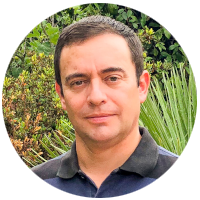
María Diéguez is a researcher at the National Institute for Biodiversity and Environmental Research (National Council for Science and Technology and Comahue National University) in Bariloche, Argentina. She holds a licenciature and a PhD in Biology from UNComa, (Bariloche, Argentina). She was a postdoctoral fellow at the IGB in Berlin, Germany and at the Biology Department in Dartmouth College, Hanover, USA, working in freshwater plankton ecology. She has done most of her research in the field of Limnology focusing in trophic interactions within pelagic food webs of Patagonian lakes. Her research involves the analysis of the mercury incorporation and transfer in planktonic food webs of shallow and deep ultraoligotrophic lakes within Nahuel Huapi National Park, a natural reserve in northwestern Patagonia under the influence of active volcanoes. Since 2010 she is in charge in the EMMA Atmospheric Mercury Monitoring Station of Global Mercury Observation System (GMOS) network.

Martin Jiskra is a SNF Ambizione Fellow in the Department of Environmental Science at the University of Basel, Switzerland. Martin has a MSc. in Environmental Sciences and a PhD both from ETH Zurich, Switzerland. After his PhD, Martin was a EU Marie-Sklodowska Curie postdoctoral Fellow at the French National Center for Scientific Research CNRS in Toulouse, France. Martins research focuses on global cycling of mercury and effects of land-use and climate change on the fate of mercury in the environment. His research uses mercury stable isotopes to address open questions in the terrestrial-atmosphere exchange of mercury and transformation and transport processes in soils. He is also interested in developing new analytical techniques and new applications. Martins current work focuses on the uptake of atmospheric elemental mercury by vegetation across Europe. The research questions are addressed by combining the novel mercury stable isotope fingerprinting tool with remote sensing and modeling techniques.

Director for Research General Coordination/ Director, Department of Basic Medical Science Specialty: Neurotoxicology, Neuropharmacology Affiliation of Academic Society: Molecular Biology Society of Japan, The Japanese Society of Toxicology The main target of methylmercury is the cranial nerve system, and exposure leading to the irreversible impairment of neural function is one of the most severe consequences. Our group aims to clarify the causal factors and the characteristics in methylmercury induced neural dysfunction using a comprehensive approach on the molecular (gene and protein), cellular (cultured cell), individual (laboratory animal) and human (pathology tissue) levels, and then to apply these results to aid in diagnosis, prevention and treatment.
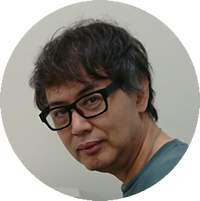
Dr. Michael S. Bank works as a Senior Scientist in the Department of Contaminants and Biohazards at the Institute of Marine Research in Bergen, Norway. Michael also serves as an Adjunct Associate Professor of Contaminant Biology at University of Massachusetts, Amherst in the USA. His research is highly interdisciplinary and has its theoretical basis in Bayesian mathematical modeling, contaminant biology, environmental toxicology, and environmental governance. Specifically, his interests are focused on three principle themes (a) How do contaminants affect organisms, including humans, (b) How can contaminants in ecosystem compartments be modeled using isotopic niches, Bayesian statistics and information theory, and (c) How can this information be used in a scientific translation and environmental governance context. Dr. Bank’s work primarily deals with real data sets that tend to be large in nature and that consider broad spatial and temporal scales. Michael serves on several expert committees and does advising on contaminants for several international environmental agencies.

Prof. Dr. Milena Horvat is a Head of the Department of Environmental Sciences - www.environment.si (since 1997) of the Jožef Stefan Institute and a Dean of the International Postgraduate School Jožef Stefan – www.mps.si (since 2016). Her main expertise is related to mercury research activities which are interdisciplinary and cover the areas of analytical chemistry, human health with a focus on exposure science, contaminated sites, marine environment, and lately also clean technologies and sensor development. Based on her basic training and education as analytical chemist, she developed and significantly contributed to standardisation and harmonisation of analytical methods and production of reference materials. By this she contributed to international comparability of data on a global scale. She has supervised over 20 PhD students, published numerous scientific articles in journals (over 270) and n H index over 50. She has coordinated numerous national and international projects among which currently EU funded MSCA ITN GMOS Train is directly related to mercury research and training young researchers (www.gmos-train.eu). She has been involved in UNEP’s Global Mercury Assessment (GMA) reports since 2002 and attended all ICMGP conferences where she participated as a Steering group member in many of them. She chaired the ICMGP 2004 in Ljubljana, Slovenia. For her international activities she was awarded a price of Ambassador of Science of the R of Slovenia in 2002, and a Zois price for scientific achievements in 2014. She also obtained a Life Achievement Award for her mercury related research at the ICMGP 2019.
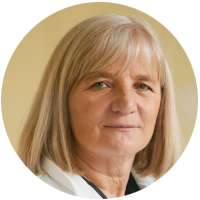
Nicola Pirrone is Research Director at the National Research Council (CNR) of Italy. He was the Director of the Institute of Atmospheric Pollution Research of the CNR (2008-2018) and most recently (2018-2019) a visiting scholar in the Harvard University John A. Paulson School of Engineering and Applied Sciences. He also serves as an expert for major international and national public and private organizations in the field of environmental research and policy development. He is the Representative of the EU Presidency in the ad-hoc group for the Effectiveness Evaluation of the Minamata Convention, the Italian Representative in the Group on Earth Observation (GEO), and the European Representative in the Executive Committee of GEO. He is also serving (since 2006) as co-chair of the UNEP Fate &Transport Research Area, which provided scientific support to the UNEP Governing Council during the development of the Minamata Convention on Mercury, an international treaty that became effective in 2017. He is the chair of the GEO Flagship “Global Observation System for Mercury” to support the development of the Global Earth Observation System of Systems (GEOSS). He was also the Head of the Italian delegation at Conference of Parties (COP1 and COP2) of the Minamata Convention, and chair of the Workgroup on Mercury as part of the Task Force on Hemispheric Transport of Air Pollutants under the UNECE-LRTAP convention. He has published over 300 papers in the peer-reviewed literature, books and international conference proceedings. He graduated in Nuclear Engineering at University of Pisa in Italy, a post-doc at the International Institute for Applied Systems Analysis and University of Michigan, and also currently serves as an Adjunct Professor with the Environmental Health Sciences at the University of Michigan. He received the Kathryn R. Mahaffey Lifetime Achievement Award for “his outstanding contribution to mercury research and policy” and the UNEP award for “his commitment and outstanding contribution to the UN Environment Global Mercury Partnership”.

Noelle Eckley Selin is Associate Professor in the Institute for Data, Systems and Society and the Department of Earth, Atmospheric and Planetary Sciences at the Massachusetts Institute of Technology. She is also the Director of MIT’s Technology and Policy Program. Her research uses atmospheric chemistry modeling to inform decision-making on sustainability challenges, including mercury as well as other hazardous substances. Her work also examines interactions between science and policy in international environmental negotiations. She is the author (with H. Selin) of the book Mercury Stories: Understanding Sustainability through a Volatile Element (MIT Press, 2020). She received her PhD from Harvard University in Earth and Planetary Sciences as part of the Atmospheric Chemistry Modeling Group. Her M.A. (Earth and Planetary Sciences) and B.A. (Environmental Science and Public Policy) are also from Harvard University. Her articles were selected as the best environmental policy papers in 2015 and 2016 by the journal Environmental Science & Technology. She is the recipient of a U.S. National Science Foundation CAREER award (2011), a Leopold Leadership fellow (2013-2014), Kavli fellow (2015), a member of the Global Young Academy (2014-2018), an American Association for the Advancement of Science Leshner Leadership Institute Fellow (2016-2017), and a Hans Fischer Senior Fellow at the Technical University of Munich Institute for Advanced Study (2018-2021).

Patricia Forbes is an Associate Professor in Analytical Chemistry at the University of Pretoria, South Africa and she holds the Rand Water Chemistry Research Chair. She was previously employed as Environmental Manager at Impala Platinum Refineries, and as Head of the Air Quality Research Laboratory of the CSIR. Prof Forbes was awarded the 2019 ChromSA Chromatographer of the Year award in recognition of her research achievements. She received the Chemical Education award of the South African Chemical Institute in 2014, the international Wharton QS Reimagine Education Award for Presence Learning in 2015, and the University of Pretoria Teaching Excellence and Innovation Laureate award in 2016 for chemistry outreach in Africa. Prof Forbes serves on the Professional Standards Board of the Royal Society of Chemistry (RSC) and chairs the RSC Local Section South Africa North committee, as well as the Chromatography Division of the South African Chemical Institute. She is Editor in Chief of the South African Journal of Chemistry, is a member of the journal Editorial Boards of Applied Science (Springer Nature) and Environmental Toxicology and Chemistry (Society of Environmental Toxicology and Chemistry (SETAC)), and is Managing Guest Editor of MethodsX (Elsevier). Patricia’s research focuses on the development of novel sampling and analytical methods for environmental pollutants; including denuder based sampling techniques for semi-volatile organic compounds in air, biomonitors (such as biomonitoring of atmospheric mercury using lichens), and quantum dot based fluorescence sensors for trace pollutant detection in water.
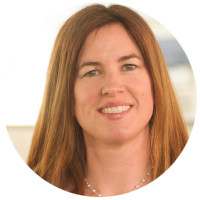
Peter Nelson is Professor of Environmental Studies at Macquarie University in Sydney. Professor Nelson has more than 40 years’ experience in research on the assessment and control of air pollution and on environmental issues associated with energy production and use. He undertakes research on the sources, transport and fate of atmospheric mercury. He led the development of the UNEP guidelines on best available techniques and best environmental practices for controlling industrial emissions from non-ferrous metal smelting, the third largest source. He has been a member of the expert group preparing the 2013 and 2018 UN Global Mercury Assessments and co-lead of the UN Environment Partnership on mercury from Coal Combustion (the second largest source).

Prof. Shuxiao Wang is a professor in School of Environment, Tsinghua University. She is also the Director of the State Environmental Protection Key Laboratory of Sources and Control of Air Pollution Complex in China. Her research interests focus on air pollution control, including mercury emission, transport and fate, and control policies. She has led over 20 research projects on mercury as PI. She has been serving as an expert of the Task Force on Hemispheric Transport of Air Pollution (TF HTAP), UNEP Global Mercury Partnership Advisory Group, and the Technical experts group on emissions of the Minamata Convention on Mercury. She published over 200 peer-reviewed journal papers, and was awarded as Global Cited Scientist in 2019.
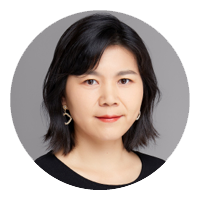
Susan Egan Keane is the Senior Director of Global Advocacy, in the International Program of the Natural Resources Defense Council (NRDC), a US-based environmental advocacy group. Susan is a public health specialist with over 30 years of experience working on domestic and international environmental health issues. In the past decade, her work has focused on advocating for the reduction of global mercury pollution. Susan directly engaged with governments during the negotiations of the Minamata Convention on Mercury, which entered into force in August of 2017, and is now working to put the Convention into action. In particular, she is working with the Global Environment Facility (GEF) and UNEP on planetGOLD, a multi-country program to reduce mercury use in artisanal and small-scale gold mining. She is also the co-leader of the ASGM Area of the United Nations Environment Program Global Mercury Partnership.

Dr Vincent Gololo is a process engineering senior specialist in the Department of Forestry, Fisheries and Environment in the government of South Africa. His work involve conducting air quality research studies, developing air quality related policies and legislation. He is extensively involved in United Nation Multilateral Environmental Agreements that are related to air quality and chemicals management. He was instrumental in developing the mercury emission inventory for South Africas Mercury Initial Assessment report. His background is chemical engineering and has published a number of papers in the area of chemical process modelling, optimization of cooling systems and process integration. He is a member of expert panel member for Stockholm Convention on BAPBEP and a member of the South African Technical Committee on mercury a subsidiary Committee to the Multistakeholder Committee on Chemicals Management.
